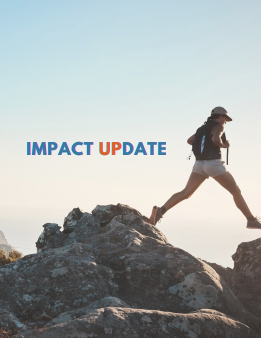Unlocking Your Impact: How to Ask Better Questions of Your Data (and Why It Matters More Than Ever)
In a world that's increasingly drenched in data, it’s tempting to think more numbers will automatically lead to better insights. (Spoiler alert: it doesn’t.)
Data without intention is like trying to navigate with a GPS that only tells you where you've been, not where you should go.
That’s why the real magic happens when you ask the right questions — questions that guide your impact work, not just describe it. Whether you're a funder, nonprofit, or social sector organization, your ability to shape what you learn starts with how you interrogate your data.
Here’s how you can unlock your data’s full potential by asking smarter, sharper, and more actionable questions.
1. Start with Purpose, Not Just Curiosity
Before diving into dashboards or spreadsheets, take a beat: Why are you collecting this data? What decisions are you trying to make?
Ask yourself:
-
What do we hope will change because of this work?
-
What are the key outcomes we’re trying to achieve — for people, communities, or systems?
-
How will understanding these outcomes inform how we allocate resources, shift strategies, or support our partners?
Data should be in service of learning, growth, and greater impact — not just compliance or reporting checkboxes. Before diving into data collection, it's critical to anchor your efforts in a strong impact framework.
2. Frame Questions That Drive Action
Effective questions are like good coffee: strong, energizing, and designed to wake you up.
Examples of action-driving questions:
-
Where are we seeing the greatest progress toward our goals — and why?
-
Where are grantees encountering barriers — and what can we change to better support them?
-
What strategies seem to produce consistent impact across multiple grantees or regions?
-
How do lived experiences, stories, and community voices validate (or challenge) our data trends?
Notice: these questions don’t just look backward. They’re forward-facing, inviting strategic shifts based on real insights.
3. Balance the Quantitative and the Qualitative
Numbers can tell you what is happening. Stories and qualitative feedback often tell you why.
Foundations and nonprofits making the biggest strides in impact measurement today know that blending hard data with human experiences leads to stronger, more actionable learning.
A few key areas to explore:
-
Surveys and interviews to capture nuance
-
Narrative reporting alongside metrics
-
Open-ended questions in impact evaluations
-
Tracking stories of resilience, innovation, and community leadership, not just outcomes
Integrating these layers helps you see the full, three-dimensional picture — not just a two-dimensional graph.
4. Make Learning a Two-Way Street
One of the biggest shifts happening across philanthropy right now is the move away from one-way reporting and toward shared learning.
If you’re a funder, ask:
-
How can we create space for grantees to share insights, not just outputs?
-
What can we learn from our partners — not just about them?
If you’re a nonprofit, ask:
-
How can we co-create evaluation frameworks with funders, ensuring the questions being asked are meaningful to both parties?
-
How can we tell stories that connect impact to systemic change, not just activities?
Building trust through shared learning isn’t just feel-good fluff — it leads to better data, stronger partnerships, and deeper impact. Forward-thinking funders, like Ballmer Group, are shifting from top-down reporting to collaborative learning with grantees through innovative initiatives like our Collaborative Cohorts - a grant program that focuses on capacity-building and creating spaces for vulnerable, shared learning opportunities not only between nonprofits, but between nonprofits and funders as well.
5. Keep Your Questions Dynamic, Not Static
Impact work is alive. Your data strategy should be too!
Don’t settle for a one-and-done evaluation plan. Your learning questions should evolve as your programs, partnerships, and external environment shift.
Schedule regular reflection moments:
-
What new patterns are emerging that we didn’t anticipate?
-
What assumptions have been challenged?
-
What should we stop, start, or double down on based on what we’re seeing?
Think of your learning questions like a living organism — adapting, growing, and staying curious over time.
Final Thoughts: Data Isn’t the Destination — It’s the Map
At its best, your data isn’t just a report card. It’s a roadmap for deeper learning, braver experimentation, and greater impact.
When you lead with the right questions — rooted in purpose, open to nuance, and alive to change — you unlock a more powerful story about who you are, what you stand for, and the difference you're making in the world.
Ready to start asking better questions of your data?
UpMetrics helps mission-driven organizations and grantmakers turn data into action, insights into strategy, and curiosity into community-wide impact.
To learn more, schedule time to connect with our team.

April 29, 2025
